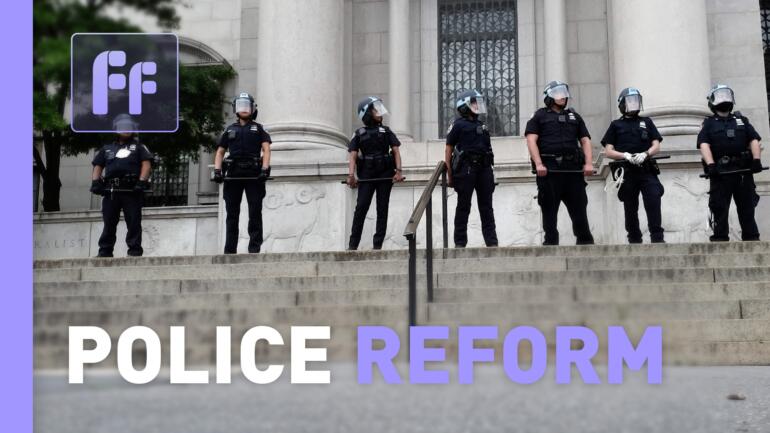Distrust of the police, particularly in marginalized communities in the U.S., creates a divide that undermines effective law enforcement. That distrust can escalate tensions, even during routine traffic stops.
Melvin Russell is the former chief of community relations for the Baltimore Police Department. He served on the police force for 40 years. During his tenure, he was put in charge of policing one of the most violent districts in Baltimore.
“The community hates the police. This is the stain that towards us… And I am shocked. I am flabbergasted, but I’m seizing at this point, and I’m trying to figure out what happened, right? And I realized that the communities and the police officer, the relationship that they did have back in the eighties and the nineties has somehow gone bankrupt,” Russell said in an interview with Mike Walter.
Russell’s work in community policing meant establishing relationships with community members to regain that trust.`
He added, “If you really want to change policing in America, stop just giving these police departments all this federal funding, and there’s no measurables.”
Changing policies
Dayvon Love is a Baltimore-based political organizer and the Director of Public Policy for Leaders of a Beautiful Struggle, a grassroots think-tank that advances the public policy interests of African-Americans.
Love co-founded the organization in 2010. Since then, he and fellow organizers have helped lead reforms to the criminal justice system.
For Love, police reform is deeply tied to tackling racism.
“By and large, I think people need to develop an understanding that if we’re serious about addressing racism and white supremacy in this society, then there needs to be investment in Black people’s ability to practice sovereignty and self-determination. And outside of that, there is no freedom without that,” he said in an interview with Mike Walter.
Survivors of police violence speak out
Racial profiling and discriminatory practices persist in some police departments, leading to disproportionate arrests and violence against communities of color. Full Frame features the story of Michael Corey Jenkins and Eddie Terrell Parker, victims of police brutality in Mississippi.
 CGTN America
CGTN America
